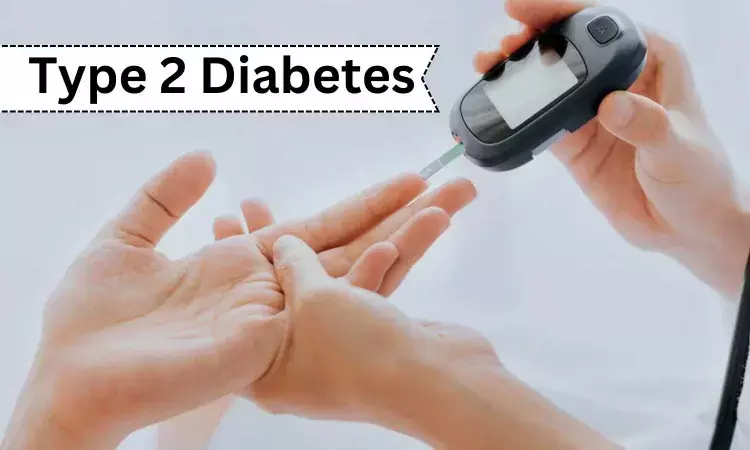- Home
- Medical news & Guidelines
- Anesthesiology
- Cardiology and CTVS
- Critical Care
- Dentistry
- Dermatology
- Diabetes and Endocrinology
- ENT
- Gastroenterology
- Medicine
- Nephrology
- Neurology
- Obstretics-Gynaecology
- Oncology
- Ophthalmology
- Orthopaedics
- Pediatrics-Neonatology
- Psychiatry
- Pulmonology
- Radiology
- Surgery
- Urology
- Laboratory Medicine
- Diet
- Nursing
- Paramedical
- Physiotherapy
- Health news
- Fact Check
- Bone Health Fact Check
- Brain Health Fact Check
- Cancer Related Fact Check
- Child Care Fact Check
- Dental and oral health fact check
- Diabetes and metabolic health fact check
- Diet and Nutrition Fact Check
- Eye and ENT Care Fact Check
- Fitness fact check
- Gut health fact check
- Heart health fact check
- Kidney health fact check
- Medical education fact check
- Men's health fact check
- Respiratory fact check
- Skin and hair care fact check
- Vaccine and Immunization fact check
- Women's health fact check
- AYUSH
- State News
- Andaman and Nicobar Islands
- Andhra Pradesh
- Arunachal Pradesh
- Assam
- Bihar
- Chandigarh
- Chattisgarh
- Dadra and Nagar Haveli
- Daman and Diu
- Delhi
- Goa
- Gujarat
- Haryana
- Himachal Pradesh
- Jammu & Kashmir
- Jharkhand
- Karnataka
- Kerala
- Ladakh
- Lakshadweep
- Madhya Pradesh
- Maharashtra
- Manipur
- Meghalaya
- Mizoram
- Nagaland
- Odisha
- Puducherry
- Punjab
- Rajasthan
- Sikkim
- Tamil Nadu
- Telangana
- Tripura
- Uttar Pradesh
- Uttrakhand
- West Bengal
- Medical Education
- Industry
Fasting ketone bodies strongly and independently associated with diabetes in general population: Study

Netherlands: Findings from a longitudinal prospective study have shown a strong positive relation between fasting plasma ketone body levels and incident type 2 diabetes (T2D) in the general population. The findings, published in the journal Diabetes have important implications for diabetes prevention including dietary strategies.
There has been a rising incidence and prevalence of type 2 diabetes. Instead of this, the identification of prospective biomarkers that predict type 2 diabetes is increasingly relevant for personalized medicine strategies. Ketone bodies have recently received a renewed interest as potential biomarkers, but there is a lack of data linking these metabolites to diabetes risk. To address this knowledge gap, Tamas Szili-Torok, University Medical Center Groningen, Groningen, the Netherlands, and colleagues investigated a potential association between fasting ketone bodies and incident type 2 diabetes in the general population.
The study was undertaken from the PREVEND cohort and included 3,307 participants from the general population initially free of impaired fasting glucose or diabetes. Nuclear magnetic resonance spectroscopy was used to measure baseline fasting ketone body concentrations.
Type 2 diabetes was defined as self-report of type 2 diabetes diagnosis, nonfasting glucose of ≥11.1 mmol/L, fasting glucose of ≥7.0 mmol/L, or initiation of glucose-lowering medication. Impaired fasting glucose was defined according to the criteria of the WHO reflecting the standard of care in the Netherlands (6.1–7.0 mmol/L).
The authors reported the following findings:
- 3.8% of the participants developed type 2 diabetes during a median follow-up of 7.3 years.
- In Kaplan-Meier analysis, sex-stratified ketone body levels were strongly positively associated with incident type 2 diabetes, which was confirmed in Cox regression analyses adjusted for several potential confounders.
- There was no significant interaction by sex. Both 3-β-hydroxybutyrate and acetoacetate+acetone are individually associated with incident type 2 'diabetes.
"Our study demonstrates that fasting ketone bodies strongly and independently associate with incident type 2 diabetes in the general population," the researchers wrote. "These data may have important implications for the identification and potential stratification of subjects at risk for T2D development, and for considering intervention strategies against the obesity epidemic with its cardiometabolic sequelae."
Limitations of PREVEND were that free fatty acids were not determined, dietary habits were not recorded, and participants were from a relatively homogenous, predominantly White population. Also, HbA1c levels were not available to establish a type 2 diabetes diagnosis, and ketone body concentrations were only measured at baseline and not during follow-up.
Reference:
Tamas Szili-Torok, Martin H. de Borst, Erwin Garcia, Ron T. Gansevoort, Robin P.F. Dullaart, Margery A. Connelly, Stephan J.L. Bakker, Uwe J.F. Tietge; Fasting Ketone Bodies and Incident Type 2 Diabetes in the General Population. Diabetes 1 September 2023; 72 (9): 1187–1192. https://doi.org/10.2337/db22-0826
Dr Kamal Kant Kohli-MBBS, DTCD- a chest specialist with more than 30 years of practice and a flair for writing clinical articles, Dr Kamal Kant Kohli joined Medical Dialogues as a Chief Editor of Medical News. Besides writing articles, as an editor, he proofreads and verifies all the medical content published on Medical Dialogues including those coming from journals, studies,medical conferences,guidelines etc. Email: drkohli@medicaldialogues.in. Contact no. 011-43720751


